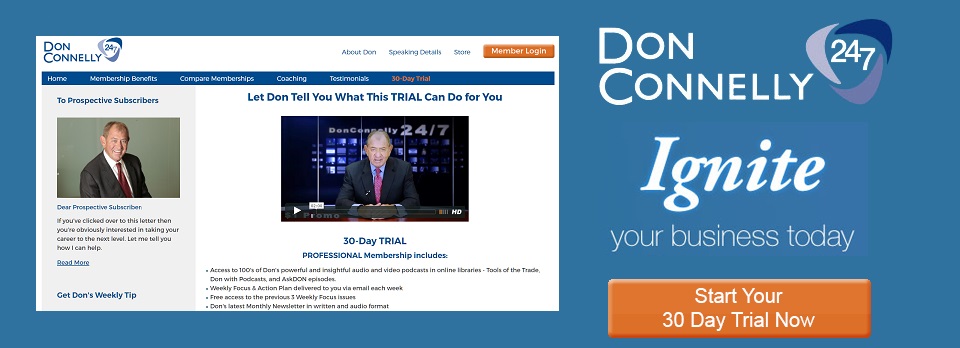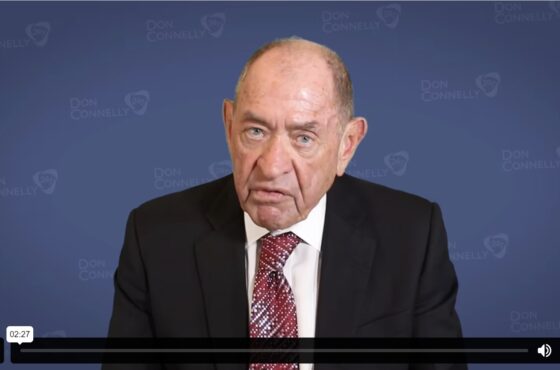5 Questions Prospects May Ask You before Deciding to Hire You as Their Financial Advisor
 Just as there are many questions you need to ask a potential client, prospects will have plenty of things they’ll want to know before they consider doing business with you too. Here are five questions you’re likely to receive.
Just as there are many questions you need to ask a potential client, prospects will have plenty of things they’ll want to know before they consider doing business with you too. Here are five questions you’re likely to receive.
#1. What are your fees?
Don’t overreact to this innocent question. Be upfront about your fees to avoid any confusion down the line. This shouldn’t be a taboo subject and failure to enter into this discussion may cause them to distrust you. In general, prospects are more concerned with fee clarity, than absolute levels of fees.
If, however you get the impression prospects are looking for a discount broker, make it clear that this isn’t you, because you offer a full service.
You don’t need to rationalize the fact you get paid fees. The issue here is value, so you need to make pricing irrelevant or of lesser importance. Get across that you are central to their success, and that they need you – not a robot-dealer. Providing the level of service they need involves a fair payment structure.
Now is the time to reflect on your own value. Before you discuss what you charge, you must know what you’re worth. If you’re worth what you’re asking, pricing will never be a problem. If you can’t articulate your value, pricing will always be a problem.
#2. Why are you the right advisor for me?
Prospects will want to know why they should put their confidence in you, as opposed to any other advisor. They’re asking if you will work well on their behalf.
To respond to this question, you need to verbalize your unique value proposition. What is it about you that makes you the right fit for them?
People like working with people they like, so make sure prospects can see that you are a person of integrity and charm. Show them that you understand their situation perfectly, and that you are 100% enthusiastic about their goals.
Connect with prospects using stories and analogies. Tell the story about how you helped a couple just like them achieve their dream retirement or how you helped a family get their kids through college without borrowing money.
Tell prospects your ‘who I am’ story to illustrate your caring side. Is there a lesson you learned the hard way? Did this lesson subsequently make you an even stronger person and financial advisor? Look to your past for stories you can recount to prospects, so they can get to see the ‘real’ you.
#3. What can I expect from you?
It’s a given that prospects will want you to manage their financial affairs competently. But they will also expect to receive exemplary service. They will want to know how often they should expect to hear from you, how you will communicate with them and how quickly they can expect a response to their questions.
Establish client expectations early on and decide with your clients what they are comfortable with. For example, what deserves an email and what requires a face-to-face meeting or a phone call? They probably won’t want to talk to you every month just as they don’t want to talk to their doctor every month. But there’s no one formula, every client has different requirements.
The main thing is, whatever you decide, be consistent. The when, what and how is their decision. Once you’ve had this discussion, never fall short of their expectations.
#4. Who is your ideal client?
Prospects may want to know if you have a special expertise in their area. For example, if you’re talking to a young couple with children, do you consistently get great results for people in this age group, at this stage of life and with a similar asset level?
If, as you should be, prospecting to your niche market, simply pull out your ‘ideal client’ sheet and hand it to prospects so they know you’re on the same page as them. If you haven’t developed an ideal client profile, this is something to get done straight away. Be sure to get approval from your Compliance department before handing it out. Then decide only to prospect to people with these set of characteristics.
#5. Do you have a succession plan?
Prospects will want to know whether you plan to be there for the long term for them, and if you will always put their interests above yours. Let them know you are a long-term planner and that you have a succession plan. They will then be more likely to put their trust in you. If you don’t have a succession plan, you may stumble – take practical steps towards implementing one so you can answer this question with confidence.
Rather than leave questions to prospects to bring up, it’s a good idea to take the lead and broker these issues yourself. It shows you are comfortable with your fees, can illustrate why they should work with you, and that you are consistent and reliable. If you aren’t the first to broach these subjects, make sure you are ready to answer these questions clearly and honestly.




